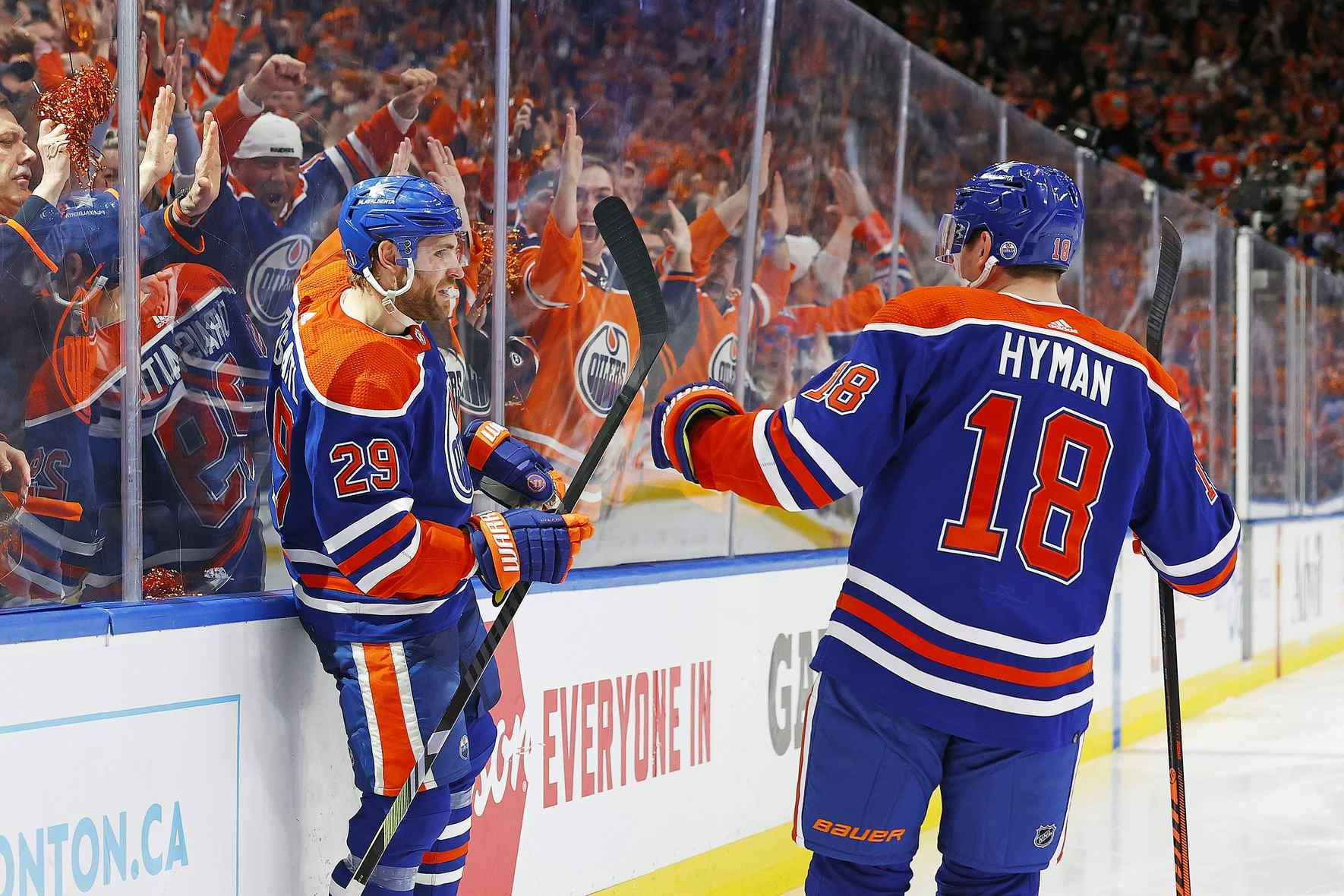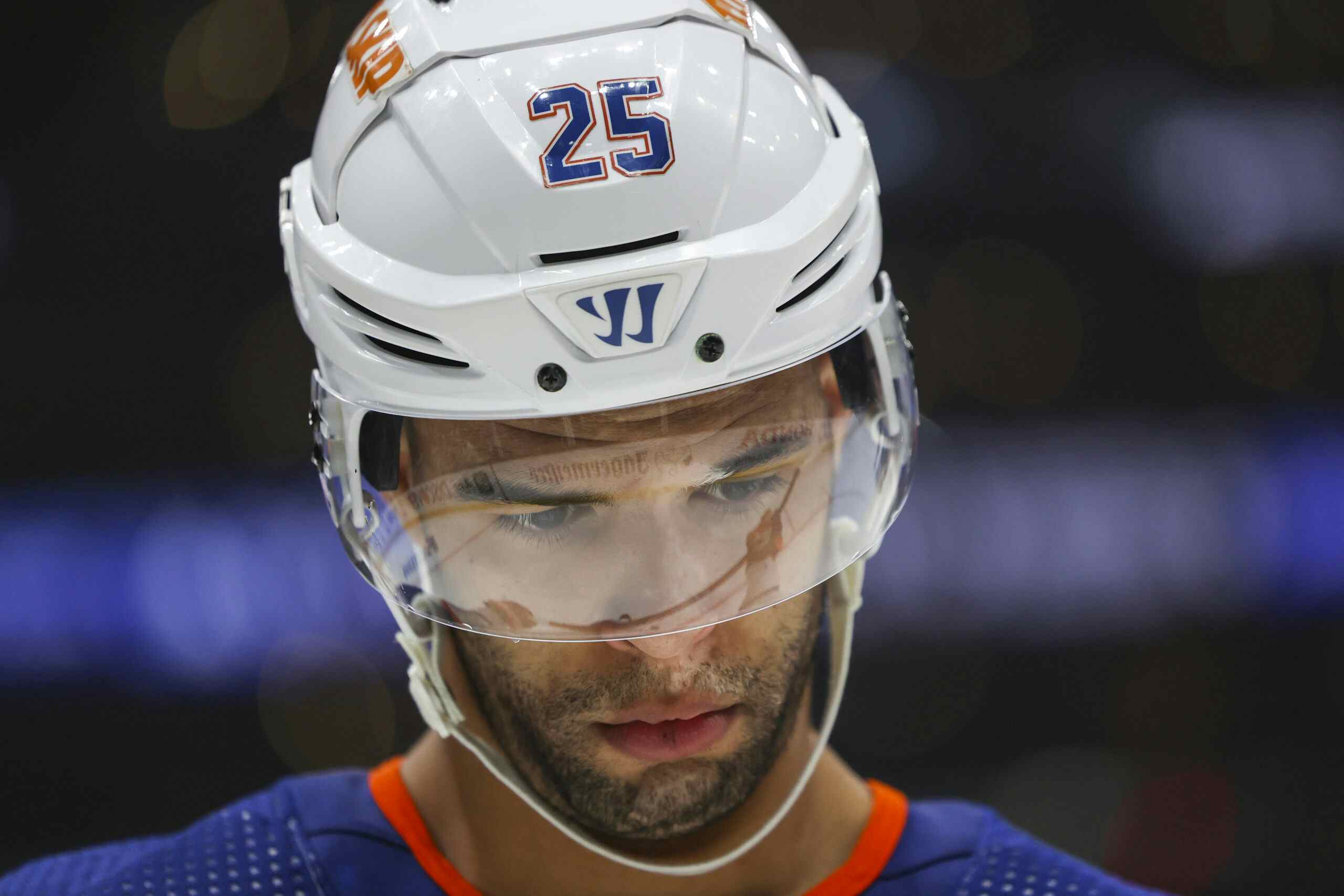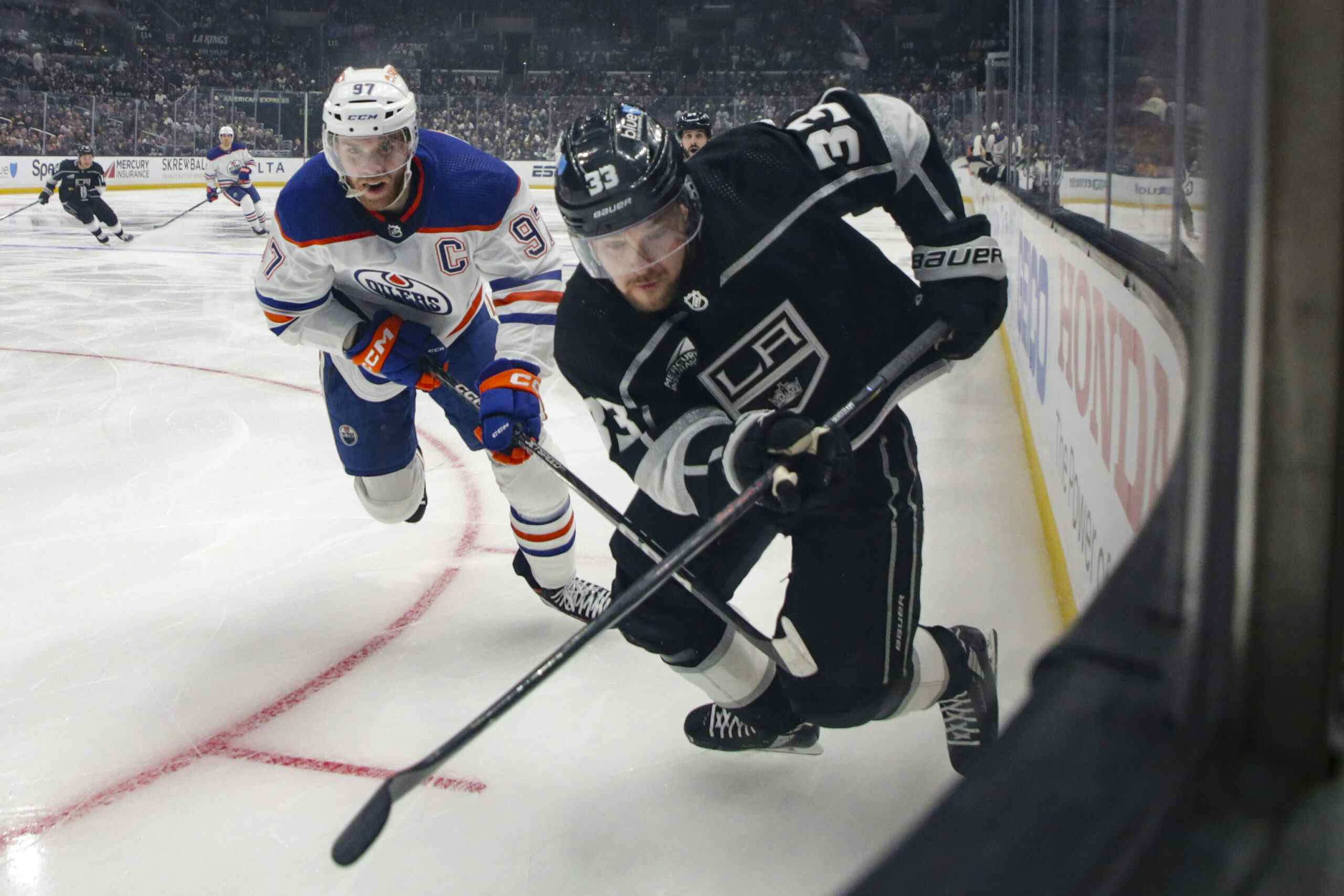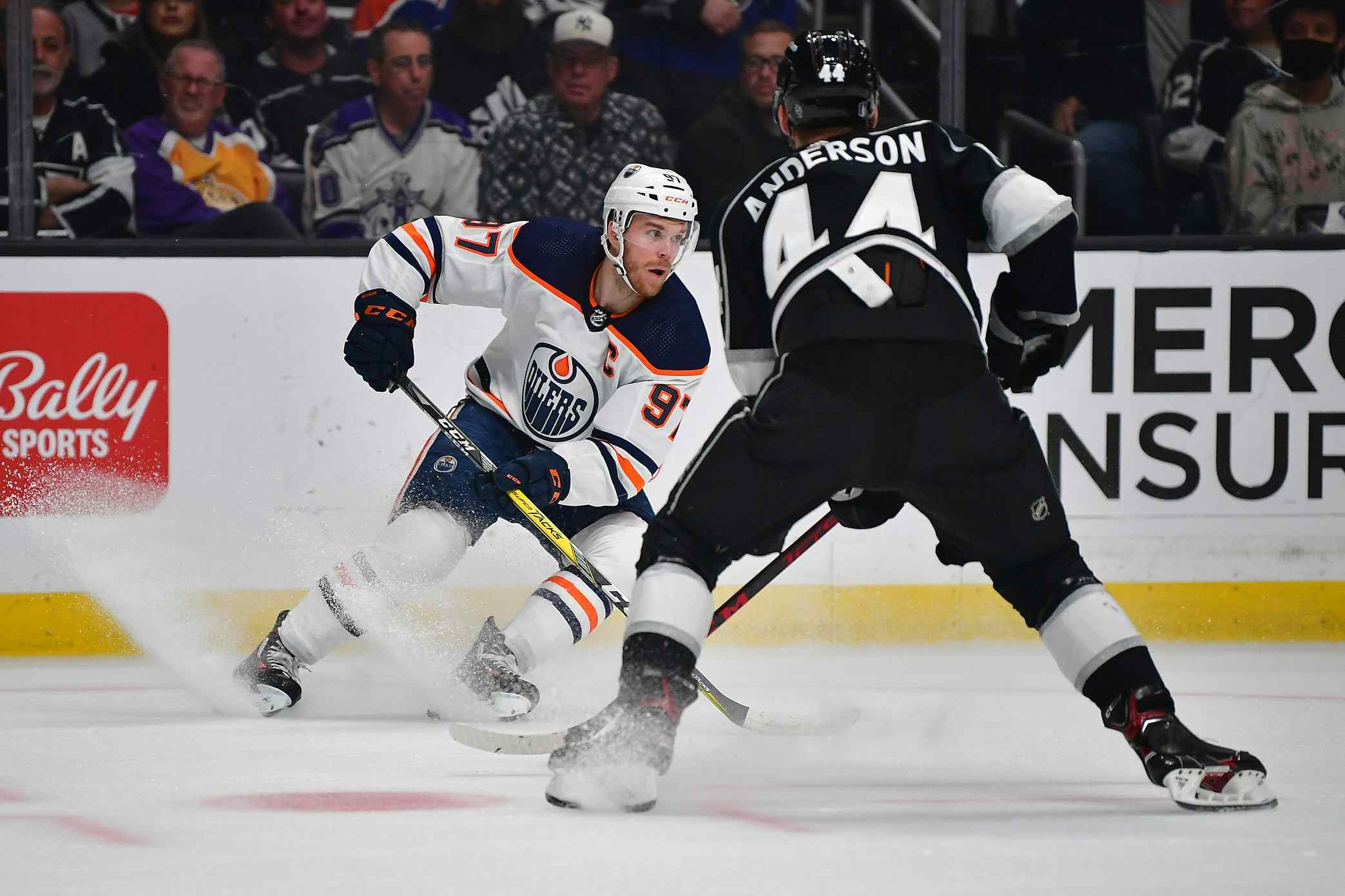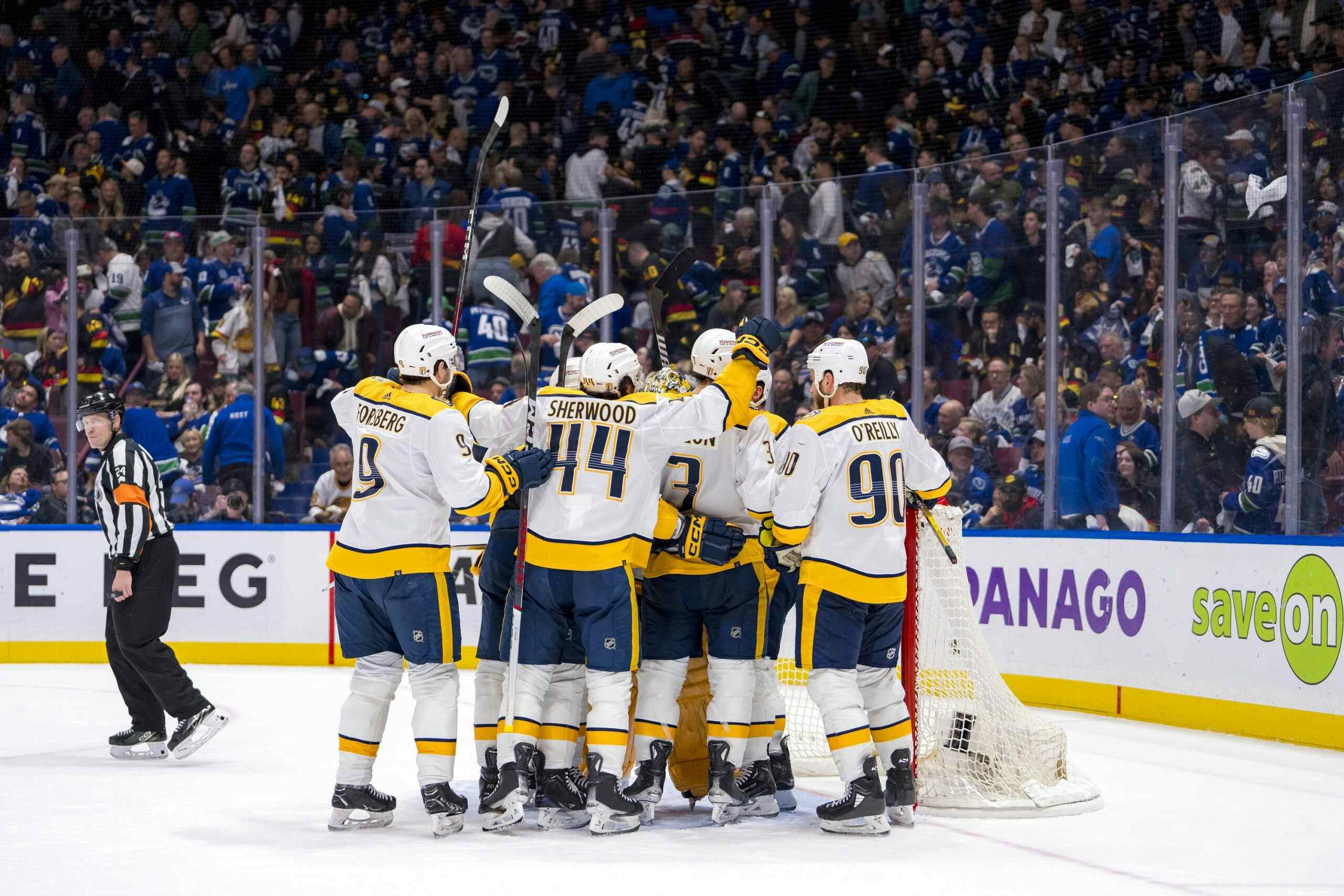The Gambit

I’ve always enjoyed the game of chess. I can’t claim that I’m especially good at it (although I achieved one childhood ambition and am now at the point where I can play my dad to a standstill), but I like it nonetheless. One of the common terms used in chess is the gambit. For those of you unfamiliar with the gambit, here’s a brief and relatively accurate definition, from Wikipedia:
A gambit is a chess opening in which the first player risks or sacrifices material, usually a pawn, with the hope of achieving a resulting advantageous position.
The gambit is closely related to sacrifice, of which there are many examples. Shot-blocking is an example; the player sacrifices some pain in order to prevent the shot from getting through to the net. Dump-ins are another example; the team sacrifices possession of the puck in order to gain the zone, or sneak in a line change while the opposition reacts.
If I were sitting behind Steve Tambellini’s desk, the Oilers strategy at the trade deadline would revolve around the principle of sacrifice. As I write this, the Oilers are tied with the Anaheim Ducks for 9th place in the Western Conference. They’re five points out of 5th and six points out of 15th in the West, so they’re just one of eleven teams hoping to snag the bottom four playoff spots. There really isn’t that much differentiating them from any of the other teams in that block; just for example, let’s compare the Oilers’ goals for and against the two worst Western teams (St. Louis and Colorado):
Edmonton: 165GF – 182GA = -17 differential
St. Louis: 165GF – 178GA = -13 differential
Colorado: 165GF – 186 GA = -21 differential
St. Louis: 165GF – 178GA = -13 differential
Colorado: 165GF – 186 GA = -21 differential
The lucky teams in those bottom four spots will meet Chicago or Calgary. The unlucky teams will meet Detroit and San Jose. The smart money says that whoever does squeak into the playoffs will get knocked down in the first round.
I know that all bets are off once the playoffs start, any team can win a seven-game series, etc., etc., but the likelihood of any of the bottom eleven teams in the Conference working their way to the Stanley Cup is extremely low. There are arguments to be made for some (Vancouver’s improved substantially, Dallas is only ranked this low because of their bizarrely awful start, etc.), but not for Edmonton. Their location in the standings has been earned; this is the team they are. A fringe playoff team without the horses to do much in the playoffs.
Dan Barnes has a column out today where he argues that Shawn Horcoff and Ales Hemsky could use a legitimate first-line left wing. I completely agree with Barnes that this is an area of weakness, but I disagree with his assertion that the Oilers should shore it up.
I think the Oilers should sell at this trade deadline.
Is scrabbling into the post-season to be first-round fodder enough? I think not. If it isn’t enough, why should this team burn useful assets (draft picks, prospects, and young roster players) for a couple of home playoff games?
If I were in charge, I’d make the following moves:
1. Trade Erik Cole. Erik Cole is an unrestricted free agent who has suffered through the worst season of his career here in Edmonton. Still, he has a strong track record season over season and should have some value to an Eastern Conference team, so it makes sense to move him for something rather than lose him for nothing in the summer. Mike Brophy contended the other day that his poor playoff stats mean his value as a playoff guy is low; but I’d argue that he’s wrong. 23 of Cole’s 25 career playoff games came in his rookie season, where he didn’t score much, the other two came as a surprise comeback from a broken neck en route to a Stanley Cup win. I’d suggest that most GM’s place value on the latter, and recognize the context of the former.
2. Trade Steve Staios. If at all possible, Staios should be traded. He’s a player I’ve always liked, and there’s no questioning his desire, but he’s on a contract with a 2.7-million cap hit until 2010-11. 2010-11, by the way, is when Sam Gagner’s and Andrew Cogliano’s entry-level deals run out, and the cap is slated to drop. If at all possible, the Oilers should get out from under that contract.
3. Trade Ethan Moreau. Most here will recognize that Moreau’s penchant for awful penalties drives me a little batty, but that’s not the principle reason he should be traded. The principle reason he should be traded is that he’s a) 33 years old b) having his first healthy season in three years and most importantly c) signed to a contract with a cap hit of two-million per season until 2010-11. The Oilers aren’t going to win this year, and Ethan Moreau should have considerable value to a playoff team.
4. Trade Rob Schremp. I laid out my thoughts on Schremp the other day; suffice to say that while he is still a prospect, I think a trade would be in the interests of both him and the Edmonton Oilers.
Outside of those four moves, a number of other players should be considered for new addresses. Dustin Penner is signed long term, and I do like him as a player but it’s fair to ask if he’ll ever deliver value on his contract. Robert Nilsson has had a dreadful season, and while his contract is a bargain if he can perform consistently, the phrase “consistent performance” doesn’t leap to mind in connection with his name. Marc Pouliot’s been in the doghouse for much of the season, but he’s incredibly cheap and has some versatility, so I’d personally keep him as a bottom-six forward. I’d also hang on to Fernando Pisani; given his health woes his value is likely low, and while his contract is expensive it expires next season, at which point it should be possible to sign him for less money.
Finally, one of the Oilers’ top-four defensemen could be trade-bait. It’s probably worth considering that Sheldon Souray is having by far the best season of his career, has a track record of injury, and isn’t getting any younger. That said, Souray’s physical presence is unique in the top-four and would need to be replaced, so I’d guess that if one of the top-four was moved it would be Tom Gilbert.
As for what the Oilers should be looking for in exchange, I’d be happy with prospects and picks, as well as a third-line centre. Typically, checkers are not expensive deadline acquisitions, and the Oilers have been desperate for another veteran centre behind Shawn Horcoff. It’s also worth considering that while the Oilers’ are ranked 8th in their conference in goals for, and 13th in goals against – in other words, while upgrades all over are important, upgrading the team’s ability to prevent goals is probably the most urgent concern.
The moves I’ve outlined help address a current weakness, while at the same time vastly improving the cap situation of this team going forward. I’d say that it’s a better course to take than sending away prospects in a likely futile attempt at a playoff run. In the big picture, it’s far better to jeopardize a playoff spot now than it is to risk this team’s ability to contend over the next few seasons.
Recent articles from Jonathan Willis

